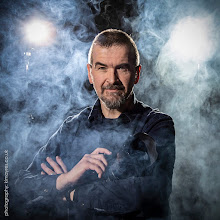Who's in Charge?
Of course the rest of humanity might well be enlightened in this matter already and be surprised I wasn’t aware of something so obvious. But it makes no difference whether I am one step ahead or 40 steps behind. What is important is how it allows me to contextualise my thoughts and feelings.
It’s about the hierarchy we assign to the body and mind.
For many thousands of years there has been the idea of a separation between mind and body. There are our thoughts, memories and ability to rationalise – which has a sort of ethereal, non-physical form - and then there is the body with its physical nature, which responds to the commands our mind gives it.
So strong is the idea of this separation between mind and body, that it is the cornerstone of many religious ideas. We can easily imagine our bodies changing and dying, but not our thoughts, which feel like our essential selves. And if this is the case, what happens when our body does die? Well then, surely our consciousness and personality must move on to some other realm.
This was thrown into some confusion, however, when Freud and others started on about there being influences on, and aspects to, our personalities that were bubbling beneath the conscious arena – a sub-conscious, full of desires and agendas our conscious mind is unaware of. In which case, our mind is not necessarily the all-powerful ruler we think it is – there are powers behind the throne.
But while this is all very well to debate over coffee or beer, on a day to day basis, we still tend to think of our thoughts as being our own – that we are our thoughts, memories and ideas. If I want to make a cup of tea, or put my shirt on backwards, then I just command my body to do so.
What doesn’t tend to occur to us is why we might want to make a cup of tea, or put our shirt on backwards.
We know that if we have bodily urges, such as wanting to eat or drink or go to the toilet, then we ignore them at our peril. We might be able to stave them off for a while, but these needs will make themselves felt more and more strongly until we reach a point where we can no longer deny them. They will obsess our every thought until we sate them.
And there are older, primal, pre-self-conscious parts of our brains where instincts and strong emotions reside. These can save our lives in extreme situations, but they feel like they get in the way when we are trying to be rational about things.
Very often our conscious thoughts follow after something triggered by another aspect of our selves. We feel hungry so then we start thinking about what we want to eat. We feel angry and then look for something, or someone, to be angry at. We want to be loved, and then we do or say things to attract approval from others.
So while we might think that who we are is primarily our conscious mind, and our body is just there for us to command, the reality is our conscious mind is only one part of the much larger whole. A useful part, no doubt, but by no means the ruling authority. Our bodily functions, instincts, primal emotions and subconscious desires are all equally a powerful part of who we are and driving our thoughts and behaviours.

What this understanding allows me to do now, is put my thoughts and moods in a wider context – to start listening to my body, emotions and subconscious to see what they are saying, rather than either blindly ignoring or over-ruling them.
If we can understand that each part of who we are needs to be heard, acknowledged and dealt with, then it's highly likely we will suffer from a great deal less internal conflicts, guilt and exhausting emotional overloads.
.






Post a Comment